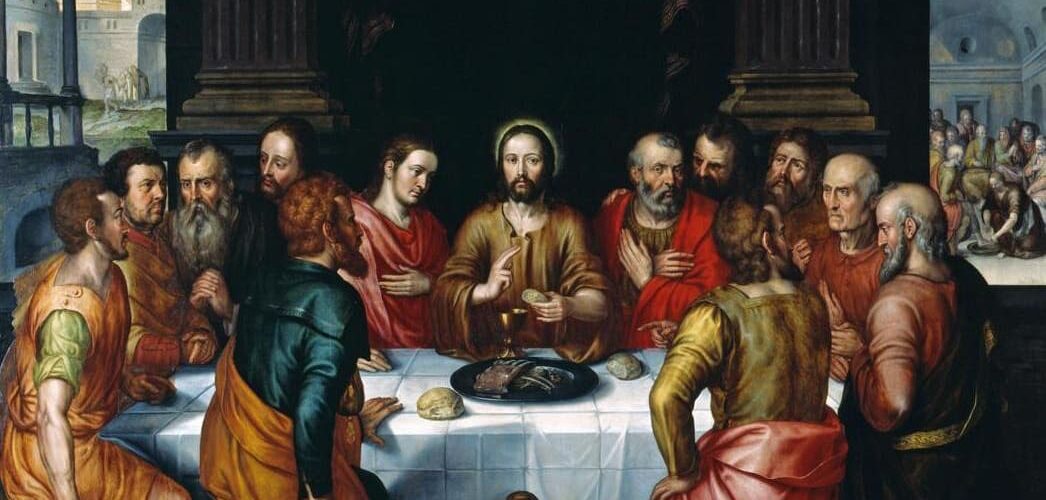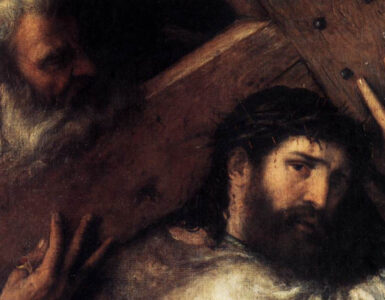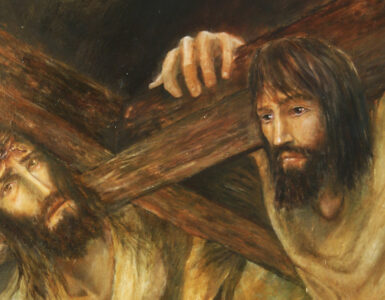During Holy Week it is important that our hearts do not get tired or overwhelmed with unnecessary things that can distract us from benefiting the most from this special time. The saints surely must have lived this intense moment within the liturgical calendar with much vigour and strength. Here they are to give us a helping hand.
In the Letter to the Hebrews, the Bible tells us that Jesus Christ is the same yesterday and today and for ever (Heb 13:8). The Cross is special because Christ makes it so. He is the one who never changes. The people who are sorely subject to change are you and I. That is my St Bruno wisely says to us: While the world changes, the Cross stands firm. The Cross remains firm because it gives us that love that is never shaken since it is built on Christ who is the rock. As the psalmist says to the Lord: The Lord is my rock, and my fortress, and my deliverer, my God, my rock, in whom I take refuge, my shield, and the horn of my salvation, my stronghold (Ps 18:2).
During this week we have the grace of contemplating as well as meditating on the Divine Heart of Jesus and the extent of its love for us, poor sinners. Upon seeing this mystery of such an incredible love, St Margaret Mary Alacoque states: The Divine Heart is an ocean full of all good things, wherein poor souls can cast all their needs; it is an ocean full of joy to drown all our sorrows, an ocean of humility to drown our folly, an ocean of mercy to those in distress, an ocean of love in which to submerge our poverty.
And Christ’s most Divine Heart is the catalyst for us to love others as he loved and still loving them. In his encylical letter which speaks on the human and divine love of the heart of Jesus Christ, Dilexit Nos, Pope Francis writes:
Often, our sufferings have to do with our own wounded ego. The humility of the heart of Christ points us towards the path of abasement. God chose to come to us in condescension and littleness. The Old Testament had already shown us, with a variety of metaphors, a God who enters into the heart of history and allows himself to be rejected by his people. Christ’s love was shown amid the daily life of his people, begging, as it were, for a response, as if asking permission to manifest his glory. Yet “perhaps only once did the Lord Jesus refer to his own heart, in his own words. And he stresses this sole feature: ‘gentleness and lowliness’, as if to say that only in this way does he wish to win us to himself”. When he said, “Learn from me, for I am gentle and humble in heart” ( Mt 11:29), he showed us that “to make himself known, he needs our littleness, our self-abasement”.
In what we have said, it is important to note several inseparable aspects. Acts of love of neighbour, with the renunciation, self-denial, suffering and effort that they entail, can only be such when they are nourished by Christ’s own love. He enables us to love as he loved, and in this way he loves and serves others through us. He humbles himself to show his love through our actions, yet even in our slightest works of mercy, his heart is glorified and displays all its grandeur. Once our hearts welcome the love of Christ in complete trust, and enable its fire to spread in our lives, we become capable of loving others as Christ did, in humility and closeness to all. In this way, Christ satisfies his thirst and gloriously spreads the flames of his ardent and gracious love in us and through us. How can we fail to see the magnificent harmony present in all this? (nos.202-203).
In the Gospel Jesus tells us: He who finds his life will lose it, and he who loses his life for my sake will find it (Matt 10:39) and … For whoever would save his life will lose it, and whoever loses his life for my sake will find it (Matt 16:25). These beautiful and powerful quotes of Jesus remind us that those who lose themselves in Him will find themselves once more. St Catherine of Siena writes: He will provide the way and the means, such as you could never have imagined. Leave it all to Him, let go of yourself. Lose yourself on the Cross, and you will find yourself entirely.
When we celebrate Holy Thursday, we are reminded how Jesus in the Eucharist is our medicine. St John Mary Vianney’s reflection brings this aspect crystal clear to us: What does Jesus Christ do in the Eucharist? It is God, who, as our savior, offers himself each day for us to his Father’s justice. If you are in difficulties and sorrows, he will comfort and relieve you. If you are sick, he will either cure you or give you strength to suffer so as to merit Heaven. If the devil, the world, and the flesh are making war on you, he will give you the weapons with which to fight, to resist, and to win victory. If you are poor, he will enrich you with all sorts of riches for time and eternity. Let us open the door to his sacred and adorable Heart and be wrapped about for an instant by the flames of his love, and we shall see what a God who loves us can do. O my God, who shall be able to comprehend?
Through his humanity Jesus kept showing his divine nature up to the point that on the third day he was risen from the dead. St Athanasius of Alexandria tells us: Even on the Cross, He did not hide himself from sight; rather, He made all creation witness to the presence of its maker. Then, having once left it be seen that is was truly dead, He did not allow that temple of his body to linger long, but forthwith on third day raised it up, impassible and incorrupt, the pledge and token of his victory.
Within the context of the jubilee of hope there is no better way to remind ourselves that Jesus Christ is our hope than the wonderful reflection given to us by St Charles Borromeo. He wrote: Behold, Jesus Christ crucified, who is the only foundation of our hope; He is our mediator and advocate; the victim and sacrifice for our sins. He is goodness and patience itself; His mercy is moved by the tears of sinners, and he never refuses pardon and grace to those who ask it with a truly contrite and humbled heart.
St Charles Borromeo’s quote strongly reverberates what Pope Francis said in his catechesis of 5 April 2023, purposely entitled The Crucifix, well-spring of hope:
One image remained fixed in the minds of the disciples: the cross. That is where everything ended. That is where the end of everything was centred. But in a little while, they would discover a new beginning right there, in the cross. Dear brothers and sisters, this is how God’s hope germinates. It is born and reborn in the black holes of our disappointed expectations — and hope, true hope, instead, never disappoints. Let us think precisely about the cross: out of the most terrible instrument of torture, God wrought the greatest sign of his love. Having become the tree of life, that wood of death reminds us that God’s beginnings often begin with our endings. Thus, he loves to work wonders. So today, let us look at the tree of the cross so that hope might germinate in us — that everyday virtue, that silent, humble virtue, but also that virtue that keeps us on our feet, that helps us move forward. It is not possible to live without hope. Let us think: Where is my hope? Today, let us look at the tree of the cross so that hope may germinate in us … that we may be healed of our sadness. And how many sad people there are! When I used to be able to go out to the streets — I cannot do it now because they do not allow me — but when I could go out to the streets in another diocese, I used to like watching people’s faces. How many sad faces! Sad people, people talking to themselves, people walking alone with their phones, but without peace, without hope. And where is your hope today? It takes a bit of hope to be healed from the sadness that makes us ill, to be healed from the bitterness with which we pollute the Church and the world. Brothers and sisters, let us look at the crucifix. And what do we see? We see Jesus naked, Jesus stripped, Jesus wounded, Jesus tormented. Is it the end of everything? That is where our hope is.
Lord, thanks to these reflections, help us immerse in the mystery of this Holy Week. Amen.






























